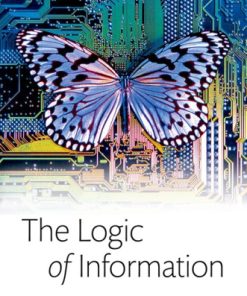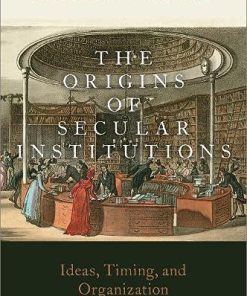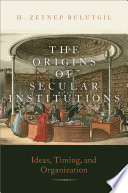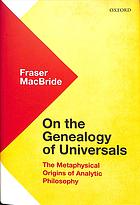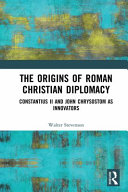The Practical Origins of Ideas Genealogy as Conceptual Reverse Engineering 1st edition by Matthieu Queloz 0192639331 9780192639332
$50.00 Original price was: $50.00.$25.00Current price is: $25.00.
The Practical Origins of Ideas. Genealogy as Conceptual Reverse-Engineering 1st edition by Matthieu Queloz – Ebook PDF Instant Download/DeliveryISBN: 0192639331, 9780192639332
Full download The Practical Origins of Ideas. Genealogy as Conceptual Reverse-Engineering 1st edition after payment.
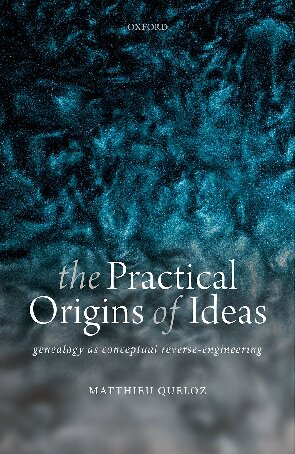
Product details:
ISBN-10 : 0192639331
ISBN-13 : 9780192639332
Author : Matthieu Queloz
This is an open access title available under the terms of a CC BY-NC-ND 4.0 International licence. It is free to read at Oxford Scholarship Online and offered as a free PDF download from OUP and selected open access locations. Why did such highly abstract ideas as truth, knowledge, or justice become so important to us? What was the point of coming to think in these terms? In The Practical Origins of Ideas Matthieu Queloz presents a philosophical method designed to answer such questions: the method of pragmatic genealogy. Pragmatic genealogies are partly fictional, partly historical narratives exploring what might have driven us to develop certain ideas in order to discover what these do for us. The book uncovers an under-appreciated tradition of pragmatic genealogy which cuts across the analytic-continental divide, running from the state-of-nature stories of David Hume and the early genealogies of Friedrich Nietzsche to recent work in analytic philosophy by Edward Craig, Bernard Williams, and Miranda Fricker. However, these genealogies combine fictionalizing and historicizing in ways that even philosophers sympathetic to the use of state-of-nature fictions or real history have found puzzling. To make sense of why both fictionalizing and historicizing are called for, this book offers a systematic account of pragmatic genealogies as dynamic models serving to reverse-engineer the points of ideas in relation not only to near-universal human needs, but also to socio-historically situated needs. This allows the method to offer us explanation without reduction and to help us understand what led our ideas to shed the traces of their practical origins. Far from being normatively inert, moreover, pragmatic genealogy can affect the space of reasons, guiding attempts to improve our conceptual repertoire by helping us determine whether and when our ideas are worth having.
The Practical Origins of Ideas. Genealogy as Conceptual Reverse-Engineering 1st Table of contents:
1. Why We Came to Think as We Do
1.1 Bringing the Pragmatic Genealogical Tradition into View
1.2 A Systematic Account of the Method
1.3 Doing Systematic Philosophy by Doing History of Philosophy
2. The Benefits of Reverse-Engineering
2.1 From a Practical Point of View
2.2 Seven Virtues of Conceptual Reverse-Engineering
2.3 Explanation Without Reduction
2.4 Weakening and Strengthening Confidence
2.5 Responsible Conceptual Engineering
2.6 Genealogy’s Place in the Methodological Landscape
3. When Genealogy Is Called For
3.1 Fictionalizing and Historicizing
3.2 Self-Effacing Functionality
3.3 Nietzsche’s Challenge: Historical Inflection and Local Needs
4. Ideas as Remedies to Inconveniences: David Hume
4.1 Motivating Genealogy: Artificiality and the Circle Argument
4.2 A Remedy to Conflict Over External Goods
4.3 De-Instrumentalizing Justice
4.4 Promising: Enabling Reciprocal Cooperation Over Time
4.5 The Functions of the State of Nature
5. A Genetic History of Thought: Friedrich Nietzsche
5.1 Philosophers’ Dehistoricizing and Denaturalizing Tendencies
5.2 Concepts Conditioned by History and Functionality
5.3 Nietzsche’s Vindicatory English Genealogies
5.4 Hypertrophy: Taking a Good Thing Too Far
5.5 Thinking Historically
6. Loosening the Need-Concept Tie: Edward Craig
6.1 Fictional Starting Points
6.2 What Informants Need to Be
6.3 A Genealogy Showing There to Be No Room for Genealogy
6.4 The Art of Our Necessities Is Strange: De-Instrumentalization
6.5 Assessing and Synthesizing Competing Accounts of Concepts
7. The Uses of Intrinsic Value: Bernard Williams
7.1 Truth: What Needs Defending?
7.2 The Point of Valuing the Truth Intrinsically
7.3 Reading Williams as a Cambridge Pragmatist
7.4 McGinn’s Three Challenges and Self-Effacing Functionality
7.5 A Pessimism of Strength: Williams’s Debt to Nietzsche
8. A Political and Ameliorative State of Nature: Miranda Fricker
8.1 Good Recipients of Information
8.2 De-Idealizing as Far as Necessary and as Little as Possible
8.3 Pairing Genealogical Explanation with a Theory of Error
8.4 Making Ameliorative Use of Pragmatic Genealogy
9. The Normative Significance of Pragmatic Genealogies
9.1 Genetic Fallacies and the Ways Around Them
9.2 Understanding Pointfulness and Avoiding Continuity Failures
9.3 The State of Nature as a Model of Local Problems
9.4 Contested Needs and the Conception of the Agent
10. Ideas Worth Having
10.1 Grounding Socratic in Pragmatic Inquiry
10.2 Pursuing Philosophy as a Humanistic Discipline
People also search for The Practical Origins of Ideas. Genealogy as Conceptual Reverse-Engineering 1st:
the practical use of things or ideas is
study of the origin of ideas
study of origins of ideas codycross
practical as opposed to idealistic
a practical explanation involves
Tags: The Practical Origins, Ideas, Genealogy, Conceptual Reverse, Engineering, Matthieu Queloz
You may also like…
Politics & Philosophy - Warfare & Defence
Politics & Philosophy - General & Miscellaneous Philosophy
The Logic of Information: A Theory of Philosophy as Conceptual Design 1st Edition Luciano Floridi
Uncategorized
Business & Economics - Industries
Politics & Philosophy - Sociology
The Origins of Secular Institutions: Ideas, Timing, and Organization H. Zeynep Bulutgil
Education Studies & Teaching - Homeschooling
Politics & Philosophy - Anthropology
Politics & Philosophy - General & Miscellaneous Philosophy
History - Ancient History





